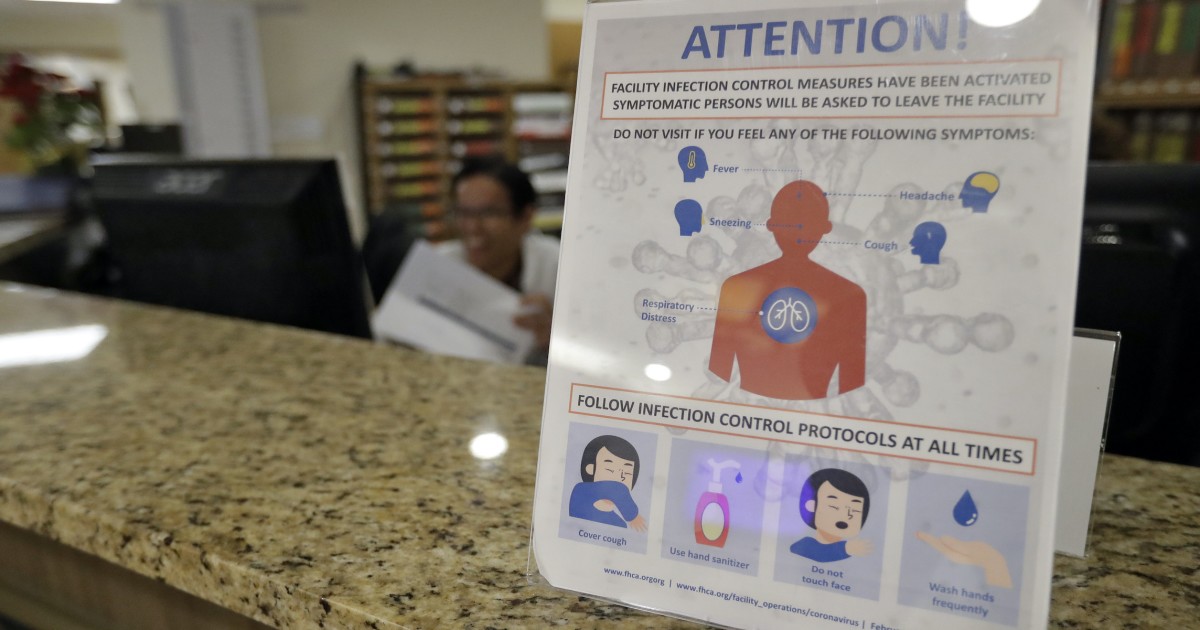
Nursing homes and other long-term care facilities in Tennessee can allow some visitation options beginning Monday if facilities can meet certain prerequisites and follow certain guidelines, Gov. Bill Lee announced Wednesday.
These types of facilities have accounted for a disproportionate number of COVID-19 deaths in Tennessee and across the country.
“From my own family experience, I know how heartbreakingly difficult and stressful it is to not see loved ones for weeks at a time,” Lee said in a statement. “Our family members, friends, and neighbors in long-term care are our most vulnerable Tennesseans. Even limited visitation options will bring relief and support for residents and visitors alike, as long as we can ensure everyone’s well-being.”
Facilities will be allowed to offer different options for visitation. A person can visit the resident inside the resident’s room if the visitor documents a negative COVID-19 test within 72 hours before the visit. If a person does not have that documentation, he or she will be able to visit the resident in an outdoor setting, in a visitation booth or through a protective barrier.
Facilities will need to enforce visitor social distancing and face coverings. They also will need to screen visitors for symptoms and check their temperature upon visiting. Visits will be by appointment only, and the facilities will need to put limits on the duration of visits and the number of visitors in the facility.
Before a facility can offer visitation, it first must meet several prerequisites. The facility must have tested each resident at least once and must be testing staff weekly. The facility cannot have any new COVID-19 cases within the previous 28 days. The facility also must comply with Board for Licensing Health Care Facilities regulations and infection control guidelines and have a stable disease burden in the community in which the facility is located.
“Our hope is to balance the need for social interaction at long-term care facilities with providing a safe environment for residents, staff, and visitors,” Lisa Piercey, the commissioner of the Tennessee Department of Health, said in a statement. “We will monitor the implementation of this visitation plan closely, knowing we may need to revert to more protective measures if we start seeing an increase in COVID-19 cases at facilities.”
Different provisions for residents receiving end-of-life care or residents with other special needs will remain in effect.
At a news conference Wednesday, Lee said people who plan to visit one of these facilities should get tested, not just for their own health, but also for the health of other people. He said more widespread testing helps the state track where the virus spreads are happening.
Lee also said the state is working on providing pop-up testing for private employees. He said state employees have been given testing opportunities and the state will work with all employers that want to offer tests for their employees.
“It helps all Tennesseans when any Tennessean gets a test,” Lee said.
Tennessee has seen an uptick in COVID-19 cases, which the governor said is expected because more people are out of their homes and interacting with other people as regulations have been lifted. Lee said the state still has stable capacity for hospitals and equipment and is in continued conversations with hospital associations and providers to monitor those numbers.
The state has had 27,869 confirmed COVID-19 cases, 1,990 hospitalizations and 436 deaths, according to the Tennessee Department of Health’s most recent numbers. The U.S. has had more than 2.03 million positive cases and at least 114,852 deaths.
COVID-19 is a respiratory disease caused by a novel coronavirus. COVID-19 symptoms appear within two to 14 days after exposure and include fever, cough, difficulty breathing, chills, repeated shaking with chills, muscle pain, headache, sore throat and new loss of taste or smell.
